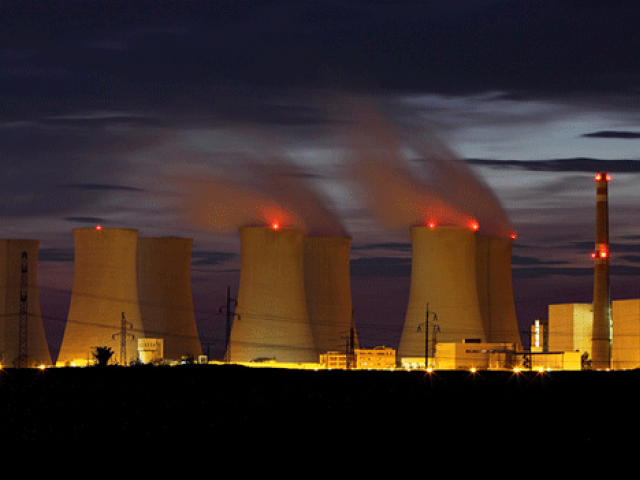Nuclear futures
Pakistan has a nuclear future but has to convince the world it is a responsible custodian of nuclear technologies

The debate is once again active as to whether membership of the NSG can be opened to non-signatory states of the NPT.

There is something of a churn going on within our foreign policy orientations, and the game-changer that is the China-Pakistan Economic Corridor (CPEC) which is redefining our relationship with China is much to the fore. Within that context, there could hardly have been much by way of optimism on the Pakistan side when we raised the possibility with the Americans of having access to peaceful nuclear technologies in order to develop our own capacity. This was raised in the context of the Pak-US Strategic Dialogue which was held in Washington.
The US Undersecretary of State for Arms Control and International Security, Rose Gottemoeller, and Pakistan’s Foreign Secretary, Aizaz Ahmad Chaudhry, were the co-chairs of the 7th round of the US-Pakistan Security, Strategic Stability, and Nonproliferation (SSS&NP) Working Group on June 2, according to a statement issued by the Foreign Office. As ever, there is little to be gleaned from the official statements that were issued afterwards, which spoke of ‘a productive exchange of views on issues of mutual importance’ and of the need of Pakistan ‘for access to peaceful nuclear technology as a socioeconomic imperative.’ There is no indication that the Americans have responded positively, and the expectation must be that they will not.
Previous applications for support have all been stonewalled, with the Americans citing concerns over the security of our nuclear weapons; a concern which is unfounded not least because it is American consultants, among others, who have provided the security architecture for our nuclear weapons. What may be of more justifiable concern relates to proliferation, and the memory of the AQ Khan fiasco wherein one of our leading atomic scientists shared information with several countries in contravention of non-proliferation protocols. It is of note that America still regards AQ Khan as a proliferation risk. Known unknowns aside, the Americans expressed ‘full confidence’ in our efforts to strengthen nuclear security. Whether we like it or not, the two countries are going to continue to work together — but possibly not as closely as Pakistan is working with China.
The nuclear partnership with China is long-standing. With the 9th Nuclear Non-Proliferation Treaty (NPT) conference now concluded, China has made it clear that although it supports in principle Pakistan gaining access to the Nuclear Suppliers Group (NSG) that support was going no further than ‘in principle’ unless Pakistan signed the Nuclear Non-Proliferation Treaty. The debate is once again active as to whether membership of the NSG can be opened to non-signatory states of the NPT. It is ultimately going to be the members of the NSG to reach internal consensus on the matter and there will be no early decision. China is playing its cards close to its chest but it may be inferred that it is ‘in principle’ and as a member of the NSG not averse to Pakistan’s entry/membership. The Americans are unlikely to take a similar view, and India will cry foul as may Russia. Pakistan has a nuclear future, both civil and military, but has an uphill job convincing some parts of the world that it is a responsible custodian of nuclear technologies.
Published in The Express Tribune, June 8th, 2015.
Like Opinion & Editorial on Facebook, follow @ETOpEd on Twitter to receive all updates on all our daily pieces.














COMMENTS
Comments are moderated and generally will be posted if they are on-topic and not abusive.
For more information, please see our Comments FAQ